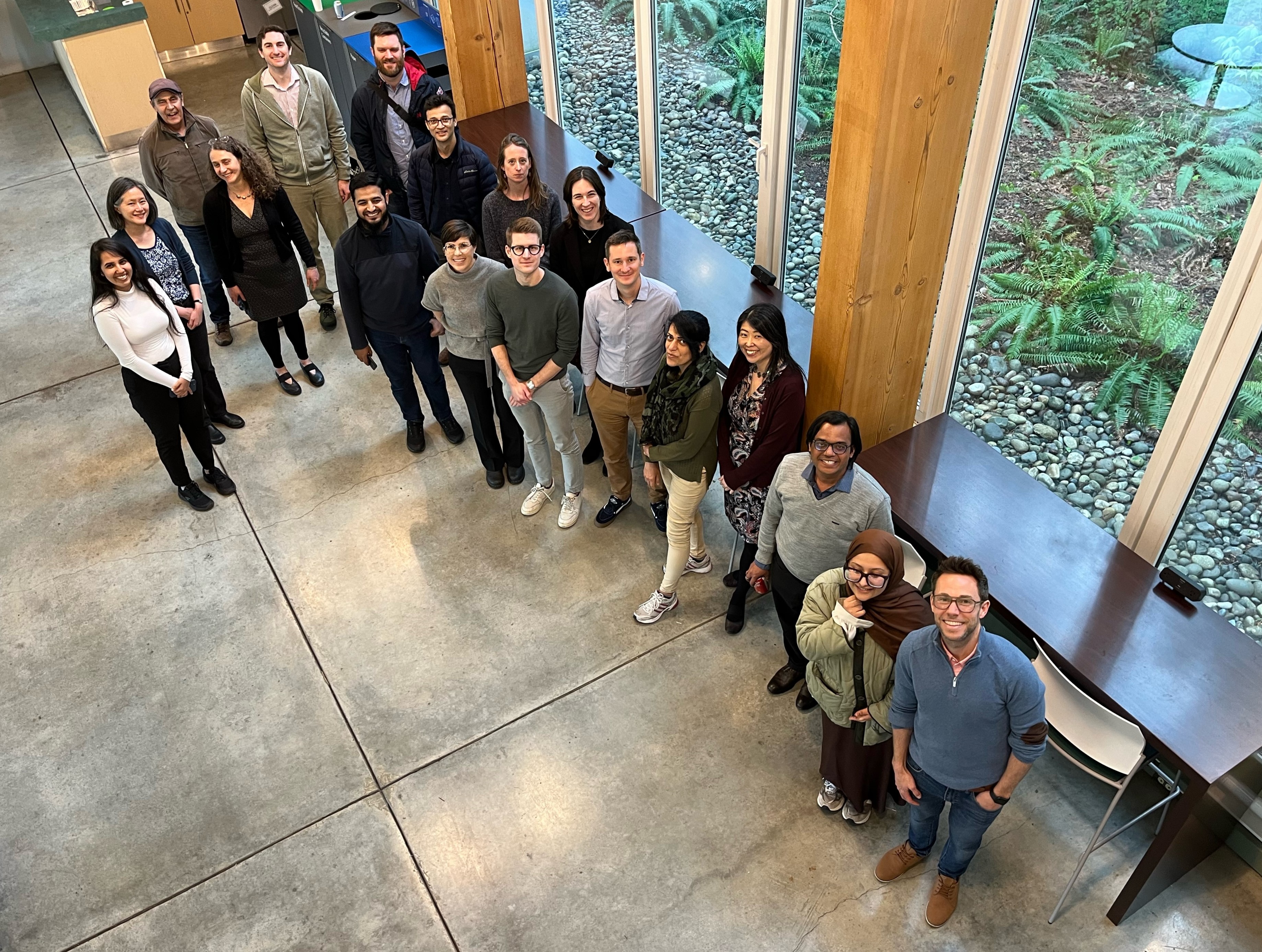Members of the Disaster Resilience Research Network (DRRN) got together in late April for a series of discussions about the network's current activities and to lay the groundwork for the future—buoyed by the recent announcement that the DRRN will receive two more years of funding from UBC's Grant's for Catalyzing Research Clusters program.
In an energy-filled series of sessions, members shared updates on some of the network's exciting current projects, including:
- An Advisory Panel to EMCR, led by Pouria Kourehpaz: Composed of disaster experts both inside and outside the DRRN, this panel will support the BC Ministry of Emergency Management and Climate Readiness (EMCR) on the province-wide disaster and climate risk and resilience assessment (DCRRA).
- BC Atlas of Disaster, led by Jocelyn Stacey & Ethan Raker: Based on a model first developed by US-based Rebuild by Design, the BC Atlas of Disaster project seeks to: describe and visualize the spatial distribution of climate disaster risk and vulnerability in BC from 2012-2022; identify data gaps and barriers that impede our understanding of climate disasters in BC; and equip communities and decision-makers with detailed information that supports climate adaptation, disaster risk reduction, and climate justice.
- Resilience Hubs for UBC Campus Communities, led by Stephanie Chang, Steven Weijs, Hailey Maxwell, Cassandra Torres: Funded through UBC's Campus as a Living Lab Grand Challenge, DRRN is teaming up with UBC Safety and Risk Services to envision infrastructure improvements, human engagement, and governance models that will make UBC's campuses more resilient to future seismic and climate-related hazards.
Read more - Graduate student engagement, led by Khayria Mansouri: Over the past year, the DRRN has begun to engage more intentionally with UBC graduate students across the university, starting with a community luncheon and ending with a series of 'Lunch & Learn' events where graduate students shared their research and professional experiences in the realm of disasters and emergencies.
Read more - BC disaster studies literature review, led by Charlotte Milne and Taylor Legere: The DRRN Graduate Fellows are wrapping up their in-depth study of the literature on disasters and resilience in BC, preparing to publish an academic paper and two online resources that will detail their findings. (Coming soon to the DRRN website!)
- Collaborative Research Agenda, led by Jonathan Eaton: As part of the collaboration with EMCR, the first draft of this document highlights the strengths and gaps when it comes to disaster research in the province, as well as disaster-related research interests and needs, as specified by dozens of emergency managers working for municipalities and First Nations across BC.
Members and partners of the DRRN also explored possibilities for new collaborations and relationship-building over the coming year, including the opportunity to work together with the UBC Centre for Climate Justice—another research cluster and network of faculty members and graduate students dedicated to tackling the political and social challenges of the climate crisis—and the First Nations' Emergency Services Society (FNESS)—an organization dedicated to helping First Nations across BC prepare, mitigate, respond, and recover from disasters and emergencies.
In planning for the next few years, Network members emphasized a focus on building relationships—both among researchers and between researchers and practitioners, especially First Nations—and developing partnerships, advancing interdisciplinary research on disaster risk and resilience in BC, and further developing cross-disciplinary courses and mentorship to support graduate students and emergency practitioners.

